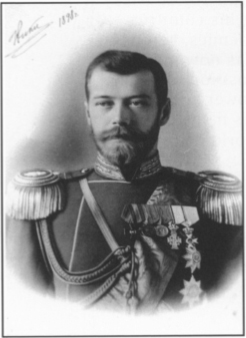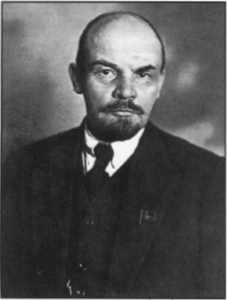
Defeat in war encourages revolution. In 1905, Russia was defeated by Japan, and revolution broke out across the country. It failed and was put down brutally everywhere, but it was a warning.
In 1917, Russia had not been defeated, but things were not going well. Huge areas of the country were occupied by the enemy, the army was poorly equipped and badly led, and a harsh winter and food shortages made life intolerable. In March, food riots broke out in Petrograd (now St. Petersburg), and soldiers refused to fire on the rioters. When Czar Nicholas II, the Russian monarch, attempted to return to his capital, he was prevented by soldiers and railway workers. The Russian generals advised the Czar to abdicate, and the monarchy in Russia came to an end.
Councils of workers and soldiers, “soviets”, became very powerful, and a Provisional Government was set up. No one talked about stopping the war—the Czar was blamed for all the problems—and the other Allies welcomed the revolution. Russia would become a democracy.
Everyone was happy, except Vladimir Ilyich Ulyanov. He was the leader of a small revolutionary party that believed that all governments needed to be overthrown and that revolution had to spread throughout the world.

Czar Nicholas II
Like many revolutionaries, Ulyanov used a code name, Lenin. When the Czar abdicated, Lenin was desperate to lead a more extreme revolution than the Provisional Government wanted, but there was a problem. Lenin was living in exile in neutral Switzerland. To get home to Petrograd, Lenin would have to cross a war-torn continent.

Lenin
The one country prepared to help Lenin return home was Russia’s enemy, Germany. The Germans thought that Lenin would stir up trouble in Russia and weaken its resolve to fight. Their plan succeeded beyond their wildest dreams.
In secret, Lenin and some of his companions boarded a sealed train. As it crossed Germany, they were not allowed to leave their carriage. After a detour through Scandinavia, Lenin arrived in Petrograd on April 16. Courtesy of his country’s enemies, Lenin was now in a position to take power and stamp his name on world history.